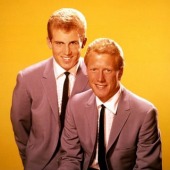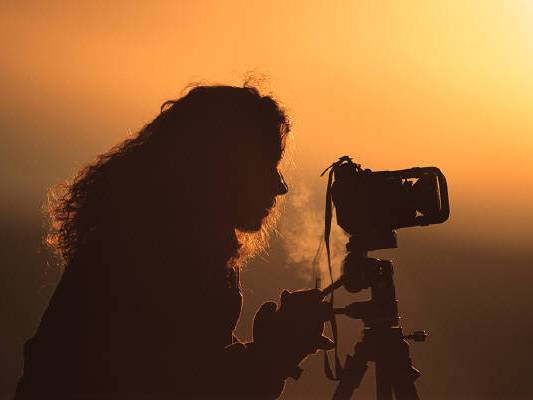Second shooter at a wedding
Last week, a friend asked me to be a second shooter for a wedding that she was shooting. I agreed because I like seeing how other photographers handle situations, especially ones as stressful as a wedding.
When I arrived, it was about eleven in the morning, and the bride and groom were about to have their “First Look,” an intimate moment where they see each other for the first time before the wedding. After we took pictures of that, we did the typical bride and groom poses.
At this time, it was no later than noon, the absolute worst time of the day for pictures because the sun is straight above, creating harsh shadows on faces. I watched my friend take pictures of them and constantly wondered how she was getting good pictures, if any. She took pictures of them and their families for at least an hour.
As we were leaving for the church, I finally had a chance to ask how she was getting good pictures with the awful light. “I’m not,” she said.
Then it hit me. I thought she was getting good pictures because she was so confident while she was doing it. Not once did she say that the light was bad. She constantly told them how good the photos were turning out. I realized that one of my biggest mistakes is telling my clients when a photo doesn’t look good.
It’s so simple. Tell your clients the photos are good, and they’ll believe they’re good. Tell them they’re bad, and they’ll wonder why they hired you in the first place.
Geiger Counter Readings in Seattle, WA on November 16, 2012
Geiger Counter Readings in Seattle, WA on November 16, 2012
Ambient office = .104 microsieverts per hour
Ambient outside = .103 microsieverts per hour
Soil exposed to rain = .113 microsieverts per hour
Granny Smith Apple from grocery store = .104 microsieverts per hour
Tap water = .088 microsieverts per hour
Filtered water = .058 microsieverts per hour
Geiger Counter Readings in Seattle, WA on November 15, 2012
Geiger Counter Readings in Seattle, WA on November 15, 2012
Ambient office = .129 microsieverts per hour
Ambient outside = .081 microsieverts per hour
Soil exposed to rain = .091 microsieverts per hour
Noi Sirius 70% chocolate bar from grocery store = .116 microsieverts per hour
Tap water = .118 microsieverts per hour
Filtered water = .114 microsieverts per hour
Geiger Counter Readings in Seattle, WA on November 14, 2012
Geiger Counter Readings in Seattle, WA on November 14, 2012
Ambient office = .160 microsieverts per hour
Ambient outside = .090 microsieverts per hour
Soil exposed to rain = .070 microsieverts per hour
Vine ripened tomato from grocery store = .099 microsieverts per hour
Tap water = .098 microsieverts per hour
Filtered water = .082 microsieverts per hour
Geiger Counter Readings in Seattle, WA on November 13, 2012
Geiger Counter Readings in Seattle, WA on November 13, 2012
Ambient office = .091 microsieverts per hour
Ambient outside = .105 microsieverts per hour
Soil exposed to rain = .125 microsieverts per hour
Red leaf lettuce from grocery store = .069 microsieverts per hour
Tap water = .086 microsieverts per hour
Filtered water = .077 microsieverts per hour
Geiger Counter Readings in Seattle, WA on November 12, 2012
Geiger Counter Readings in Seattle, WA on November 12, 2012
Ambient office = .076 microsieverts per hour
Ambient outside = .064 microsieverts per hour
Soil exposed to rain = .092 microsieverts per hour
Hass avacado from grocery store = .134 microsieverts per hour
Tap water = .109 microsieverts per hour
Filtered water = .074 microsieverts per hour
Geiger Counter Readings in Seattle, WA on November 11, 2012
Geiger Counter Readings in Seattle, WA on November 11, 2012
Ambient office = .071 microsieverts per hour
Ambient outside = .089 microsieverts per hour
Soil exposed to rain = .118 microsieverts per hour
Banana from grocery store = .120 microsieverts per hour
Tap water = .087 microsieverts per hour
Filtered water = .069 microsieverts per hour
Great graduation gift options
Having a family member or friend who is graduating can be exciting for a variety of reasons. However, you may not know what to get them as a graduation gift. Here are three great ideas on what you can get recent graduates to celebrate their success.
Geiger Counter Readings in Seattle, WA on November 10, 2012
Geiger Counter Readings in Seattle, WA on November 10, 2012
Ambient office = .119 microsieverts per hour
Ambient outside = .067 microsieverts per hour
Soil exposed to rain = .067 microsieverts per hour
Romain lettuce from grocery store = .072 microsieverts per hour
Tap water = .082 microsieverts per hour
Filtered water = .075 microsieverts per hour
Geiger Counter Readings in Seattle, WA on November 9, 2012
Geiger Counter Readings in Seattle, WA on November 9, 2012
Ambient office = .092 microsieverts per hour
Ambient outside = .111 microsieverts per hour
Soil exposed to rain = .096 microsieverts per hour
Granny Smith Apple from grocery store = .085 microsieverts per hour
Tap water = .106 microsieverts per hour
Filtered water = .091 microsieverts per hour




